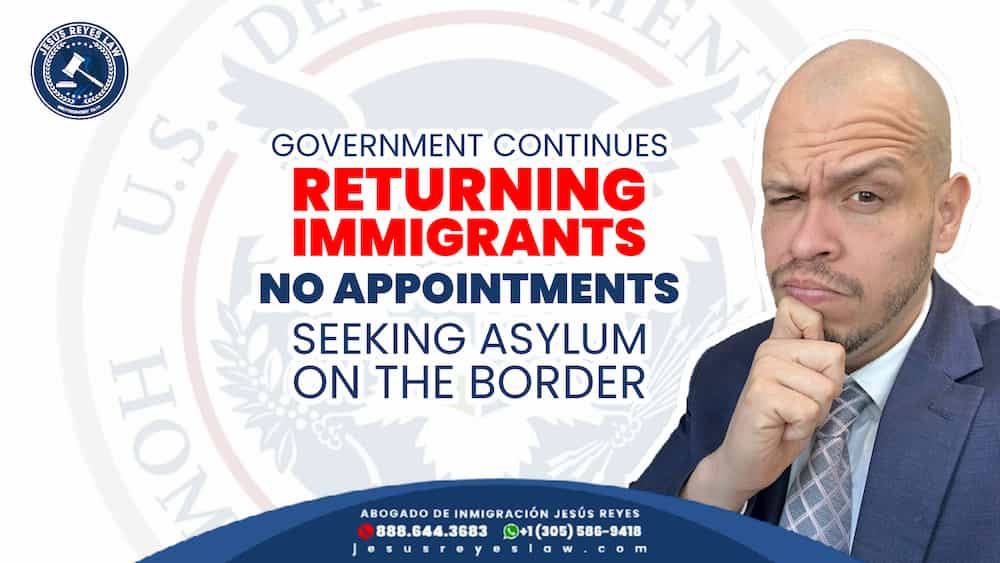The Joe Biden administration has been given the green light to continue deportations of immigrants who are encountered or apprehended at the border, and who are seeking asylum but do not have a previously scheduled appointment through the CBP One digital tool.
The U.S. District Court for the Southern District of California determined in a preliminary hearing that it did not have the authority to issue an injunction in favor of a coalition of plaintiffs seeking to reverse recent changes to the government’s asylum policy. These changes require immigrants seeking asylum relief at the border to first process authorization through the CBP One application.
In its ruling, the court informed the plaintiffs’ coalition that it “lacked authority” to issue the requested stay order. The court’s decision was based on a June Supreme Court ruling that upheld the government’s deportation priorities, stating that enforcement of federal immigration law is within the federal government’s authority.
The lawsuit against the expansion of CBP One
The plaintiff coalition asked the court to require the government to end its practice of “turning back asylum seekers who arrive at points of entry without a prior CBP One appointment.”
According to the plaintiffs, comprised of the organizations Al Otro Lado, Haitian Bridge Alliance, American Immigration Council (AIC), Center for Constitutional Rights and Center for Gender and Refugee Studies, the immigration policy governing the CBP One tool “has caused irreparable harm, both by denying plaintiffs access to the asylum process and by forcing them to wait for that access in precarious and dangerous conditions in Mexico.”
The court’s ruling, by “lacking authority” to address the lawsuit, allows the Biden administration to continue deportations of those immigrants who are apprehended at the border and who do not have a scheduled appointment with the CBP One application, or who do not have a legal basis to remain in the United States.
The coalition based its lawsuit by pointing out that, prior to the implementation of the application, the asylum law allowed aliens to arrive at the border without an appointment and apply for the asylum benefit authorized by Congress. However, due to a shortage of resources to address the crisis at the border, President Biden modified the process to control the undocumented entry of aliens into the country and more efficiently administer the resources granted by Congress.
Reactions to the court’s decision
The court’s decision was criticized by the plaintiffs, who recalled that in November 2021, the Department of Homeland Security (DHS) issued guidance that clearly states that the government “may not require asylum seekers to obtain an appointment before approaching a port of entry along the U.S. southern border,” according to the American Immigration Council (AIC).
“While the documents submitted by the government in this case confirm that this guidance (governing CBP One) has been disseminated to border agents, they routinely act in direct violation of their own agency’s guidelines,” the AIC added.
The coalition argued that the government should “follow its own policies and process asylum seekers at the southern border, regardless of whether they are lucky enough to get an appointment.”
In addition to pointing to the Biden administration’s failure to follow its own guidelines issued in 2021, the plaintiffs contend that CBP One’s policy of turning away asylum seekers without an appointment “violates U.S. law, the due process rights of asylum seekers, and U.S. obligations under international law, which prohibits the government from returning refugees to countries where they face persecution or torture.”
_______
Despite the lawsuit filed by a coalition of organizations, the Joe Biden administration has obtained authorization to continue deportations of asylum-seeking immigrants who are found or detained at the border. The court’s decision was based on the federal government’s power to enforce immigration law and the scarcity of resources to address the crisis at the border.
However, the plaintiffs criticize the court’s decision and argue that the government should follow its own policies and process asylum seekers at the border regardless of whether they have a prior appointment or not. They further argue that CBP One’s policy of turning away asylum seekers without an appointment violates U.S. law and the country’s international obligations.
The status of deportations at the border remains a contentious and evolving issue. As the Biden administration moves forward, it will be important to closely monitor policies and decisions related to asylum and immigration at the border.










